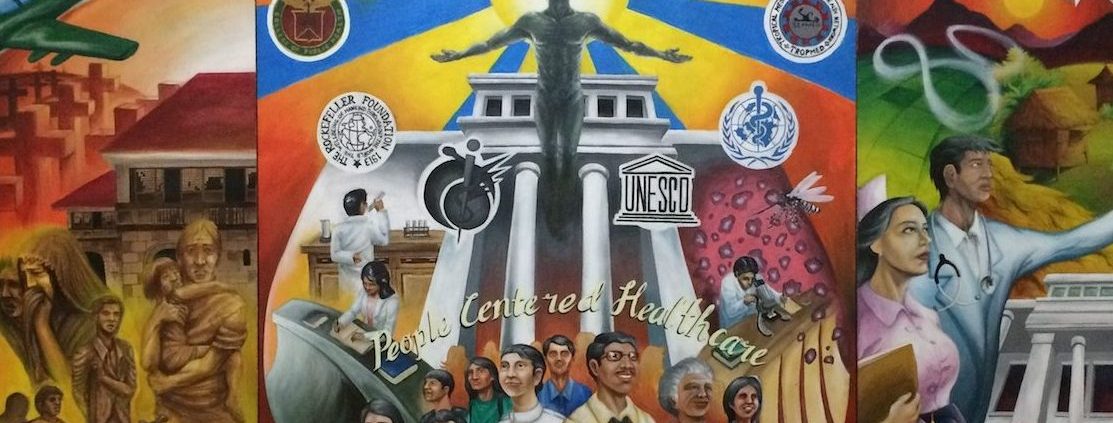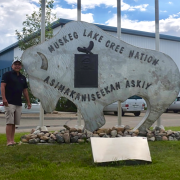Disaster Management in the Philippines
By Justine Anne Pascual, MURP ’20, MPH ’20
I was raised in a Filipino household, but I was the only one born in the United States. Although my parents maintained the Filipino customs at home, I wasn’t exposed to the history of the Philippines, its different cultures and languages, and the current issues they face, until I was an undergraduate at UCLA. With this exposure, I struggled with wanting to be a part of the growing movements in the Philippines while not being physically present to work with the communities on the ground. So when I became a dual degree master’s student in Urban Planning and Public Health, I knew I wanted to go to the Philippines to live in the country that my parents still call home and to learn about the current challenges the Filipino people face.

UP Manila Project Team.
With help from the Global Public Affairs @ UCLA Luskin’s International Practice Pathway program, I had the opportunity to conduct research on disaster risk reduction and management (DRRM) at the University of the Philippines, Manila, College of Public Health. I worked alongside a handful of public health professors and students from various academic backgrounds to form the Philippines’ first simulation-based learning laboratory (SBLL). Based on a recent focus group discussion with key stakeholders, the project team collated training areas that needed improvement. With these gaps in mind, I reviewed disaster management training modules and identified various simulation training software that can be used for a large participant pool. I also helped select the venue space that will hold the simulation-based learning laboratory. Our project plans to provide multiple simulation trainings for first responders, disaster managers, and health personnel to create better strategies of preparation, recovery, and rehabilitation. In addition, it intends to develop more realistic outcomes-based training for patient care, staff management, and interagency coordination. With the use of virtual reality (VR) software and other simulation systems, we aim to create a risk-free training environment and close the implementation gap.

Various modes of transportation in Manila.

Construction on a busy street in Ermita, Manila.

Empty street in Bonifacio Global City, Taguig, Manila.
Working with this project team gave me the opportunity to learn about different issues that Filipinos face during the preparation, recovery, and rehabilitation stages of the disaster cycle. Living in Manila also showed me the issues in the country’s infrastructure, health systems, and mobility. Although the Filipino people have been able to survive with the limited resources and government funding, it was disheartening to see the prevalent gap between the “haves” and the “have-nots.” There are stark differences in the culture, wealth, and development between Ermita (where I lived) and areas like Makati and Bonifacio Global City (BGC), which are only 5-10 kilometers away. For example, transportation and infrastructure are obvious barriers to effective disaster management and response. In Ermita, sidewalks and streets are filled with vendors selling everything from street food to cell phones to headscarves. In addition, the roads are filled with various modes of transportation like tricycles, motorcycles, taxis/rideshare vehicles, jeepneys, commuter vans, buses, and personal vehicles. Given the presence of both street vendors and various modes of transportation, traffic and congestion create a barrier for first responders to get to where they’re needed. Areas like Makati or BGC limit street vending to designated areas and allow certain modes of transportation on the road. Here wealth and location play a major role in the mobility and survival of the Filipino people, especially during natural and human-made disasters.
While the creation of the simulation-based learning laboratory will provide additional training for first responders, health personnel, and disaster managers, my time in the Philippines has also showed me that effective disaster risk reduction and management requires a multi-prong approach, one that both improves the infrastructure and planning of regions and provides adequate resources to those who are in need.










